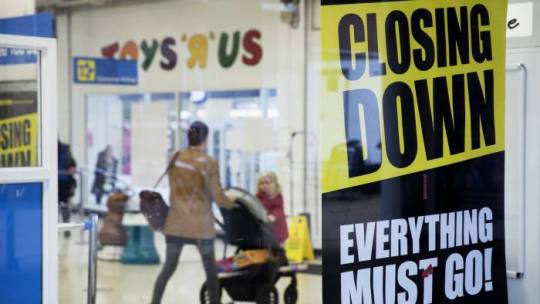
Private equity firms have been in retail news recently for
all the wrong reasons: private equity ownership appears to be a common denominator
with many bankruptcy filings over the past two years, such as Toys ‘R’ Us,
Mattress Firm, Claire’s Stores and Payless, among many
other casualties.
Now, private equity’s impact has been translated into hard
numbers. As many as 597,000 U.S. employees working for retailers owned
by private equity firms and hedge funds have lost their jobs, while the sector
as a whole added more than a million positions, according to a report
by The Center for Popular Democracy and the Private Equity Stakeholder Project.
Additionally, the study estimates that another 728,000 “indirect jobs”
have disappeared at suppliers and local businesses, bringing the total
casualties to approximately 1.3 million.
The RTP editors share their thoughts on the effects
of private equity ownership on retail jobs and discuss whether there
are alternate sources of capital that retailers could tap going forward.
Adam Blair, Editor: Has private equity really cost
1.3 million retail and retail-related jobs over the past decade? It’s
always tough to assign specific numbers, particularly when you’re dealing with
industries as complex as finance and retail. It’s also worth noting that the
spokesperson from the private equity trade group defends the industry and calls
the report biased. But even if we admit that correlation is not
causation, it’s certainly interesting that private equity
ownership that saddles a company with unsustainable debt seems to be a common
thread among retailers declaring bankruptcy: Toys ‘R’ Us, Brookstone,
David’s Bridal, Gymboree — the list goes on and on. Brick-and-mortar
retail also is in the unenviable position of owning juicy assets (in the form
of prime real estate) that are usually too tempting for owners to resist. The
solution would seem to be along the lines of what presidential candidate
Elizabeth Warren has proposed: greater oversight of the private equity
industry, with restrictions on what can and can’t be sold off and mandated
requirements to meet pension and other employee-related obligations. Retail is
a tough enough business without laboring under the burden of astronomical debt.
Glenn Taylor, Senior Editor: I’m always curious to
find out how the conditions of private equity deals play out internally. PetSmart,
for example, has a whopping $8 billion in debt remaining from its acquisition
by BC Partners in 2015, and Neiman Marcus still owes nearly $5
billion from not just one, but two leveraged buyouts. This makes me wonder
how the retailers agreed to those numbers in the first place, and if those really
were the best buyout terms available. It’s very, very hard to improve worker
conditions and make the best environment possible for thousands of employees
when a big portion of the money you make every quarter has to go back to the
owner. Unfortunately, it seems many of the retailers that agree to terms like
this already had their hands tied by the time they looked for the cash flow
that a private equity owner could provide. At this point, I think more
retailers are realizing that this type of ownership isn’t always the answer if
they are trying to get more funding. This may be outside of the box, but maybe
there’s greater potential going ahead for non-PE companies/hedge funds (perhaps
in tech or health care) that already make significant capital to take over
ownership of struggling retailers. With the convergence of retail and tech
becoming more of an inevitability, who’s to say a major data company couldn’t
have a financial interest in a retail business?
Bryan Wassel, Associate Editor: While private equity probably isn’t the
only contributing factor to the decline of these retailers, it is entirely
possible that these ownership models are at least an indirect cause. This is simply
because the goals of a private equity firm (maximize money for the firm) are at
odds with the goals of a retailer (make money, but expand sales and footprint).
While these two objectives aren’t necessarily mutually exclusive, one needs to
look no further than the Amazon success story for an example
of the key problem: Amazon took the throne as the king of e-Commerce by plowing
most of its profits back into the company for more than a decade, which is
behavior that no PE firm would support. After all, few in the 1990s would look
at an online book store and assume that its future wasn’t in selling more
books, but as a tech giant with fingers in every pie from retail to web
hosting. Certainly, successful retail operations bring in plenty of money, but
that can’t be their only goal, while venture capital firms exist solely to make
returns on their investments. It’s simply a clash of ideals.






